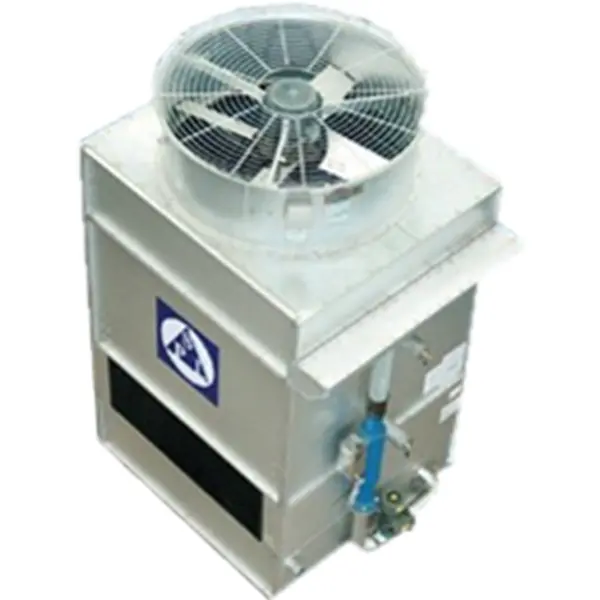An ammonia evaporative condenser is a device that is commonly used in industrial heating and cooling systems. It is an important component in refrigeration systems that separate the hot side of the refrigeration cycle from the cold side.
An ammonia evaporative condenser works by removing heat from the compressor and transferring it to the surrounding air. This is accomplished by pumping ammonia refrigerant through a series of tubes that are filled with water. As the water evaporates, it absorbs the heat and cools the ammonia. The cooled ammonia is then circulated back through the refrigeration system and the process repeats.
There are several benefits of using an ammonia evaporative condenser in an industrial setting. One of the primary benefits is that they are extremely efficient at removing heat from the system. This means that less energy is needed to cool the refrigerant, which can lead to significant cost savings over time.
Another benefit of using an ammonia evaporative condenser is that they are very reliable. They are designed to be durable and withstand the harsh conditions often found in industrial settings. As a result, they require very little maintenance and are less likely to break down or malfunction.
One of the most important benefits of using an ammonia evaporative condenser is the environmental impact. Unlike other cooling systems, ammonia evaporative condensers do not release harmful chemicals into the environment. They use natural refrigerants and water to cool the system, making them much more eco-friendly than other cooling systems.
Furthermore, ammonia evaporative condensers are extremely versatile. They can be used in a wide range of industrial applications, including food processing, chemical production, and HVAC systems. They are compatible with a variety of refrigerants, making them useful in many different industries.
Despite all of the benefits of using an ammonia evaporative condenser, there are some potential drawbacks that should be considered. For example, they can be expensive to install and may require specialized maintenance and repair. Additionally, they may not be suitable for smaller industrial applications due to their size and complexity.
In conclusion, an ammonia evaporative condenser is an important component in many industrial heating and cooling systems. It offers a range of benefits, including efficient heat removal, reliability, environmental friendliness, and versatility. However, it is important to carefully consider the potential drawbacks before deciding whether this type of cooling system is right for your specific needs.
Post time: Jun-12-2023
